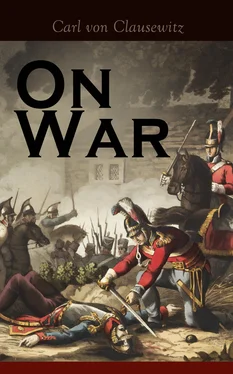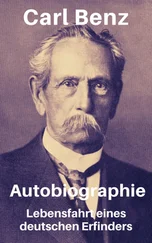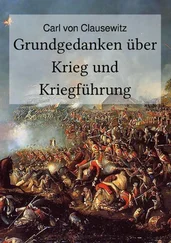Force of character leads us to a spurious variety of it—OBSTINACY.
It is often very difficult in concrete cases to say where the one ends and the other begins; on the other hand, it does not seem difficult to determine the difference in idea.
Obstinacy is no fault of the understanding; we use the term as denoting a resistance against our better judgment, and it would be inconsistent to charge that to the understanding, as the understanding is the power of judgment. Obstinacy is A FAULT OF THE FEELINGS or heart. This inflexibility of will, this impatience of contradiction, have their origin only in a particular kind of egotism, which sets above every other pleasure that of governing both self and others by its own mind alone. We should call it a kind of vanity, were it not decidedly something better. Vanity is satisfied with mere show, but obstinacy rests upon the enjoyment of the thing.
We say, therefore, force of character degenerates into obstinacy whenever the resistance to opposing judgments proceeds not from better convictions or a reliance upon a trustworthy maxim, but from a feeling of opposition. If this definition, as we have already admitted, is of little assistance practically, still it will prevent obstinacy from being considered merely force of character intensified, whilst it is something essentially different—something which certainly lies close to it and is cognate to it, but is at the same time so little an intensification of it that there are very obstinate men who from want of understanding have very little force of character.
Having in these high attributes of a great military Commander made ourselves acquainted with those qualities in which heart and head co-operate, we now come to a speciality of military activity which perhaps may be looked upon as the most marked if it is not the most important, and which only makes a demand on the power of the mind without regard to the forces of feelings. It is the connection which exists between War and country or ground.
This connection is, in the first place, a permanent condition of War, for it is impossible to imagine our organised Armies effecting any operation otherwise than in some given space; it is, secondly, of the most decisive importance, because it modifies, at times completely alters, the action of all forces; thirdly, while on the one hand it often concerns the most minute features of locality, on the other it may apply to immense tracts of country.
In this manner a great peculiarity is given to the effect of this connection of War with country and ground. If we think of other occupations of man which have a relation to these objects, on horticulture, agriculture, on building houses and hydraulic works, on mining, on the chase, and forestry, they are all confined within very limited spaces which may be soon explored with sufficient exactness. But the Commander in War must commit the business he has in hand to a corresponding space which his eye cannot survey, which the keenest zeal cannot always explore, and with which, owing to the constant changes taking place, he can also seldom become properly acquainted. Certainly the enemy generally is in the same situation; still, in the first place, the difficulty, although common to both, is not the less a difficulty, and he who by talent and practice overcomes it will have a great advantage on his side; secondly, this equality of the difficulty on both sides is merely an abstract supposition which is rarely realised in the particular case, as one of the two opponents (the defensive) usually knows much more of the locality than his adversary.
This very peculiar difficulty must be overcome by a natural mental gift of a special kind which is known by the—too restricted—term of Ortsinn sense of locality. It is the power of quickly forming a correct geometrical idea of any portion of country, and consequently of being able to find one’s place in it exactly at any time. This is plainly an act of the imagination. The perception no doubt is formed partly by means of the physical eye, partly by the mind, which fills up what is wanting with ideas derived from knowledge and experience, and out of the fragments visible to the physical eye forms a whole; but that this whole should present itself vividly to the reason, should become a picture, a mentally drawn map, that this picture should be fixed, that the details should never again separate themselves—all that can only be effected by the mental faculty which we call imagination. If some great poet or painter should feel hurt that we require from his goddess such an office; if he shrugs his shoulders at the notion that a sharp gamekeeper must necessarily excel in imagination, we readily grant that we only speak here of imagination in a limited sense, of its service in a really menial capacity. But, however slight this service, still it must be the work of that natural gift, for if that gift is wanting, it would be difficult to imagine things plainly in all the completeness of the visible. That a good memory is a great assistance we freely allow, but whether memory is to be considered as an independent faculty of the mind in this case, or whether it is just that power of imagination which here fixes these things better on the memory, we leave undecided, as in many respects it seems difficult upon the whole to conceive these two mental powers apart from each other.
That practice and mental acuteness have much to do with it is not to be denied. Puysegur, the celebrated Quartermaster-General of the famous Luxemburg, used to say that he had very little confidence in himself in this respect at first, because if he had to fetch the parole from a distance he always lost his way.
It is natural that scope for the exercise of this talent should increase along with rank. If the hussar and rifleman in command of a patrol must know well all the highways and byways, and if for that a few marks, a few limited powers of observation, are sufficient, the Chief of an Army must make himself familiar with the general geographical features of a province and of a country; must always have vividly before his eyes the direction of the roads, rivers, and hills, without at the same time being able to dispense with the narrower “sense of locality” ( Ortsinn ). No doubt, information of various kinds as to objects in general, maps, books, memoirs, and for details the assistance of his Staff, are a great help to him; but it is nevertheless certain that if he has himself a talent for forming an ideal picture of a country quickly and distinctly, it lends to his action an easier and firmer step, saves him from a certain mental helplessness, and makes him less dependent on others.
If this talent then is to be ascribed to imagination, it is also almost the only service which military activity requires from that erratic goddess, whose influence is more hurtful than useful in other respects.
We think we have now passed in review those manifestations of the powers of mind and soul which military activity requires from human nature. Everywhere intellect appears as an essential co-operative force; and thus we can understand how the work of War, although so plain and simple in its effects, can never be conducted with distinguished success by people without distinguished powers of the understanding.
When we have reached this view, then we need no longer look upon such a natural idea as the turning an enemy’s position, which has been done a thousand times, and a hundred other similar conceptions, as the result of a great effort of genius.
Certainly one is accustomed to regard the plain honest soldier as the very opposite of the man of reflection, full of inventions and ideas, or of the brilliant spirit shining in the ornaments of refined education of every kind. This antithesis is also by no means devoid of truth; but it does not show that the efficiency of the soldier consists only in his courage, and that there is no particular energy and capacity of the brain required in addition to make a man merely what is called a true soldier. We must again repeat that there is nothing more common than to hear of men losing their energy on being raised to a higher position, to which they do not feel themselves equal; but we must also remind our readers that we are speaking of pre-eminent services, of such as give renown in the branch of activity to which they belong. Each grade of command in War therefore forms its own stratum of requisite capacity of fame and honour.
Читать дальше












